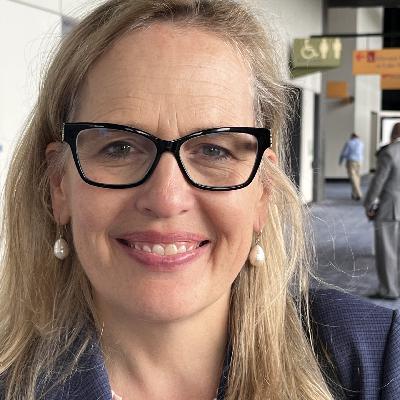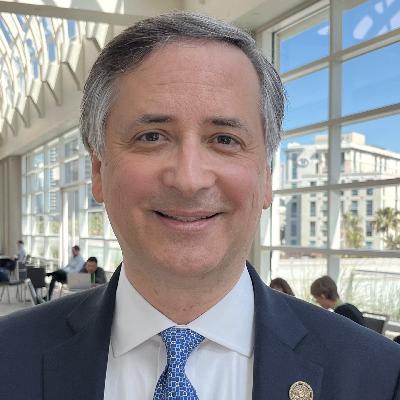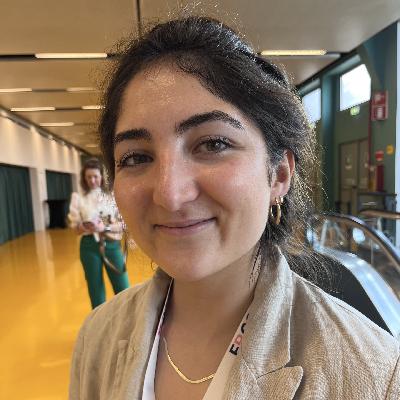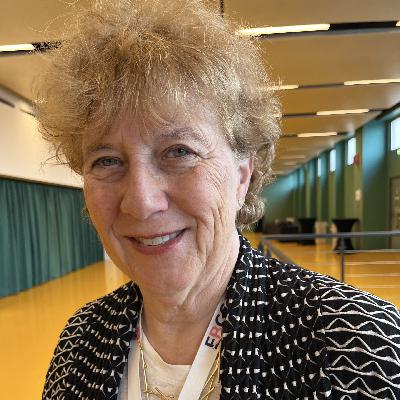Neo-Adjuvant Pembrolizumab Improved Outcomes with High-Risk ER+ HER2- Early Breast Cancer
Description
An interview with Heather McArthur MD MPH, Clinical Director of Breast Cancer, Komen Distinguished Chair in Clinical Breast Research, University of Texas Southwestern Medical Center, Dallas, USA
MILAN, Italy—Patients with early breast cancer testing positive for estrogen receptor (ER+) and negative for human epidermal growth factor receptor 2 (HER2-) had markedly better outcomes when immune checkpoint inhibitor therapy was added to their standard chemo- and endocrine therapies before and after surgery.
The KEYNOTE-756 phase 3 clinical trial found that patients benefited from having neo-adjuvant and adjuvant pembrolizumab regardless of their age or menopausal status.
The study was reported at the 14th European Breast Cancer Conference by Heather McArthur MD MPH, Clinical Director of the Breast Cancer Program and Komen Distinguished Chair in Clinical Breast Research, University of Texas Southwestern Medical Center in Dallas, USA, co-author of the study, led by Javier Cortés MD, Director of the International Breast Cancer Centre in Barcelona, Spain.
After her talk she met up with Audio Journal of Oncology reorter Peter Goodwin.
AJO podcast interview with Heather McArthur:
IN: “Hello and welcome to the Audio Journal of Oncology…
OUT: ….For the Audio Journal of Oncology, I’m Peter Goodwin.
NOTES:
The international KEYNOTE-756 trial (which has been running for eight years) randomized 1278 patients with ER-positive, HER2 negative, invasive ductal carcinoma to receive pembrolizumab or placebo in addition to neoadjuvant chemotherapy followed by adjuvant pembrolizumab or placebo in combination with an endocrine therapy.
First author Javier Cortés MD, Director of the International Breast Cancer Centre in Barcelona, Spain, said the pathological complete response rate (PCR) was 24.3% in patients treated with pembrolizumab compared to 15.6% in patients treated with the placebo.
Speaking before the EBCC 14 conference, Dr. Fatima Cardoso, Director of the Breast Unit of the Champalimaud Clinical Centre in Lisbon, Portugal (the principal investigator for the trial) said that Keynote 756 showed the addition of pembrolizumab to neoadjuvant chemotherapy significantly increased pathological response at the time of surgery, and that this had been true regardless of PD-L1 levels and oestrogen receptor positivity. However, the study found a bigger benefit with higher PD-L1 levels and in ER-low tumors.
ABSTRACT:
14th European Breast Cancer Conference Abstract no: 4:
“Neoadjuvant pembrolizumab or placebo + chemotherapy, followed by adjuvant pembrolizumab or placebo plus endocrine therapy for early-stage high-risk ER+/HER2− breast cancer: Results from the phase 3 KEYNOTE-756 study”
https://www.ejcancer.com/article/S0959-8049(24)00200-4/fulltext
























